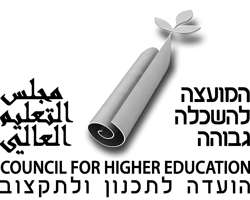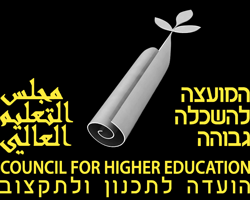The main roles of the Council for Higher Education:
• To serve as the official national authority on all issues related to higher education in Israel.
• To grant permits to institutions allowing them open and operate institutions of higher education.
• To recognize an institution as an institution of higher education.
• To authorize a recognized institution to grant academic degrees.
• To grant approval for institutions to refer to themselves by names that require approval under the Council for Higher Education Law.
• To make proposals to recognized institutions to reinforce their standing, expand and develop them, including promoting academic collaboration between them for research and teaching purposes.
• To supervise conferral of degrees.
• To submit proposals to the government – via the Planning and Budgeting Committee – to develop higher education in Israel and regarding government contributions to the higher education system based on social and national needs and priorities. The CHE will make recommendations to the government regarding establishment of additional institutions of higher education or the merger of existing institutions.
• To grant licenses to open extensions of international institutions of higher education.
• To asssess the quality of studies at the various institutions of higher education.
The main authorities of the Planning and Budgeting Committee:
• To act as an independent intermediary between the government and national institutions on the one hand and the institutions of higher education on the other, regarding budgeting for higher education. The government and national institutions will refrain from accepting requests or recommendations directly from the institutions of higher education or from other sources, and will refrain from allocating budgets to an institution of higher education that have not been approved by the Planning and Budgeting Committee.
• To propose regular and development budgets for higher education in Israel based on social and national needs, while maintaining academic freedom and striving to promote research and education.
• To exclusively allocate the total approved regular and development budgets between the various institutions of higher education.
• To propose higher education development programs to the government and CHE, and plan funding for these programs.
• To strive to streamline institutions of higher education and to coordinate their work in order to avoid unnecessary redundancy and to save money.
• To track budget utilization to prevent deficits or deviations.
• To present its professional opinion to the CHE before it decides whether to open a new institution or new unit at an existing institution.
The professional opinion submitted by the PBC will address two main issues:
o Is there a need for the new institution or unit?
o What are the financial implications of opening a new institution or unit, while the PBC will decide whether there are financial implications.



